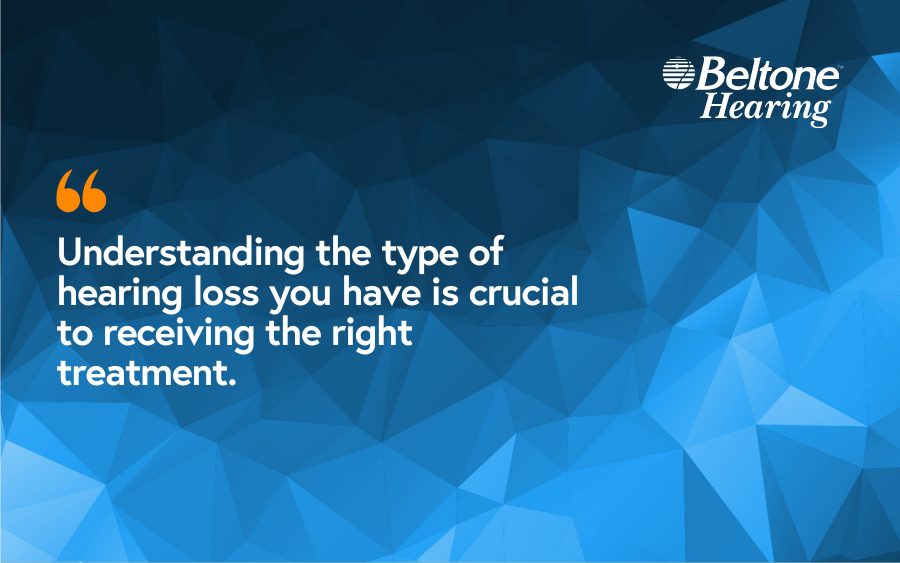When you visit Beltone Hearing, we will use our comprehensive tests to find out the extent and type of your hearing loss. This will help us to guide you towards a better hearing experience with lifestyle tips, care advice, and the right equipment.
There are two types of hearing loss.
In each case, there are different causes and treatments – we can check whether something physical is preventing you from hearing. The other option is that you have an issue with the ear that prevents you from processing the sounds you hear.
Let’s look at these two types in more detail…
Conductive Hearing Loss
#1 How is it identified?
Conductive hearing loss happens in the outer or middle ear. It is usually to do with obstruction rather than problems with the auditory apparatus.
There are various tests that can show whether sound waves are being picked up by the ear or by the nerves. If it is the latter, conductive hearing loss is the diagnosis.
#2 What causes it?
Conductive hearing loss is a result of earwax or fluid build-up, infection, tumors, allergies, or any other condition that causes a blockage in the outer or middle ear.
#3 What does it sound like?
While it’s hard to tell the difference between the types of hearing loss by sound alone, conductive hearing loss is more likely to be mild or moderate.
#4 How is it treated?
Conductive hearing loss is usually treated by removing the blockage. This might be with medication or through a medical or surgical procedure.
Sensorineural Hearing Loss
#1 How is it identified?
Sensorineural hearing loss is a problem with the hearing apparatus in the middle or inner ear. This time, a test can show that the ear is picking up sound waves normally. If this is the case, but you still have hearing difficulties, it is likely that you have sensorineural issues.
#2 What causes it?
Sensorineural hearing loss is typically caused by damage to the sensitive hairs in the cochlea. These are the sound receptors so if they are damaged or missing, it affects your ability to hear. Some disappear with age, others get lost through long-term exposure to noise, medication, or health conditions.
#3 What does it sound like?
Sensorineural hearing loss might be mild, moderate, severe, or profound. It can progress through these stages over time.
#4 How is it treated?
Sensorineural hearing loss is not currently treatable. It’s possible to slow or stop any deterioration with the right care advice. Hearing problems resulting from sensorineural issues benefit from hearing aids in the outer and middle ear.
Telling the Difference
The best way to tell which hearing loss you have is to visit one of our several Beltone locations in Ohio and Michigan for a free screening. Once we know what you have, we can help you plan the treatment and hearing support that will change your world.





